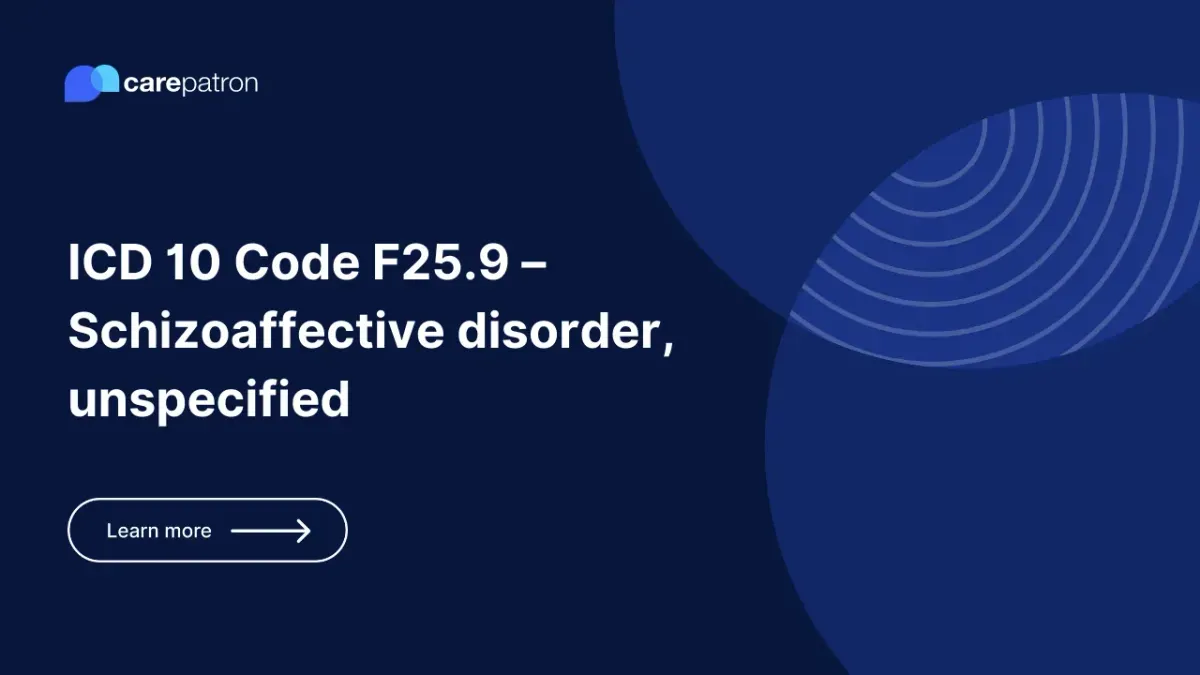
F25.9– Schizoaffective disorder, unspecified
F25.9 is an unspecified diagnosis in the ICD-10-CM for Schizoaffective disorder, unspecified, a mental illness characterized by psychotic and mood symptoms.
Use Code
Commonly asked questions
Diagnosis is made based on the presence of mood and psychotic symptoms for a significant portion of the illness. A thorough evaluation by a mental health professional is required for an accurate diagnosis.
The exact cause is unknown, but a combination of genetic, environmental, and neurochemical factors is believed to contribute to the development of schizoaffective disorder.
Yes, schizoaffective disorder can be treated. Treatment often involves a combination of medication, psychotherapy, and psychosocial support to manage symptoms and improve overall functioning.
EHR and practice management software
Get started for free
*No credit card required
Free
$0/usd
Unlimited clients
Telehealth
1GB of storage
Client portal text
Automated billing and online payments
